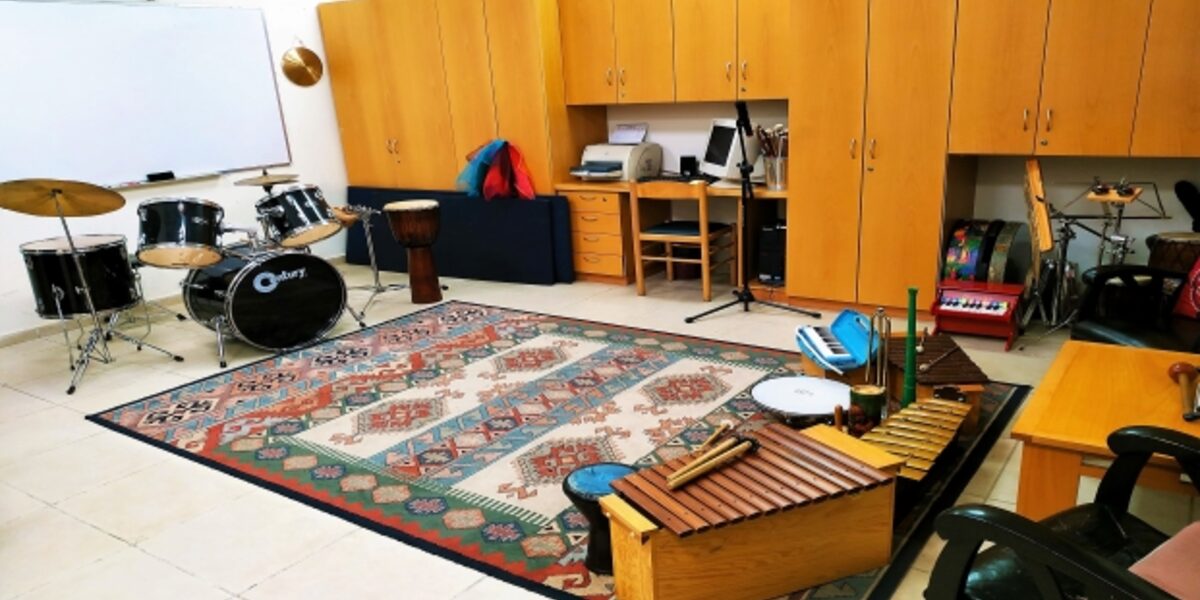Dr. Elizabeth Kay
Certified Music and Voice Therapist
Music Therapy
Children | Youth | Adults
What is Music Therapy?
Music therapy is a unique creative and expressive therapy that integrates the clinical and evidence-based use of musical interventions to accomplish personal therapeutic goals. Music therapy is a well-established health profession with thousands of studies published in top journals supporting the use of music therapy as a treatment approach for a wide range of populations and conditions. Music therapy is recognized by the Ministry of Health and may only be administered by a board-certified professional that specializes in the field. It involves an interpersonal process during which the therapist incorporates music therapeutically to improve emotional, social, behavioral, cognitive or physical functioning. At the core of every session is any number of musical experiences which the therapist designs according to the specific goals of the therapy. These may include (but are not limited to): musical improvisation, individualized listening experiences, musical guided imagery, composition and songwriting, singing, breathwork, symbolic use of musical instruments, and more.
Parental counseling and clinical supervision for educational and professional staff are further provided.
The goals of music therapy are determined according to the needs and abilities of the client. They are varied and may include: emotional expression, emotional regulation, promoting interpersonal communication, improving social skills, empowerment and improving self esteem, enhancing self awareness, memory preservation and enhancement, promoting personal insights, stress and pain reduction, obtaining tools to deal with anxiety or additional difficulties. Additional goals may include the development of creativity, musical abilities and the voice in unique ways, personally tailored to each individual.
Who Can Music Therapy Help?
Music therapy can be effective for a wide range of conditions and populations. I offer music therapy for individuals of all ages: children, adolescents, adults and seniors. Among the wide variety of difficulties I treat are emotional, behavioral, social, developmental, neurological and vocal conditions. Some of the areas where music therapy has shown to be particularly beneficial include:
- Emotional and Mental Health: Music therapy can help individuals with depression, anxiety, and other mood disorders by promoting emotional expression, self-esteem, stress reduction and relaxation, enhancing mood and well-being, and developing coping skills.
- Autism Spectrum Disorder (ASD): Music therapy can assist individuals with autism in improving communication and social skills, emotional regulation, sensory integration, and instill in them a sense of achievement thereby improving self-image.
- Attention Deficit Disorder (ADD): Music therapy can improve focus and help individuals with ADD develop better concentration and attention skills, promote emotional expression, relaxation. and emotional regulation, foster self-esteem, develop social skills essential for building positive relationships, and enhance executive functioning skills (crucial for tasks like time management and decision-making).
- Vocality, Speech and Language Difficulties: Music and voice therapy can aid in speech and language development in children with speech delays or communication disorders and in the rehabilitation of vocal abilities affected by physiological or psychological circumstances, such as selective mutism, stuttering, hoarseness, vocal loss, vocal cord dysfunction, aphasia, impairment of vocal quality or regulation and more.
- Developmental Disabilities: Music therapy can be beneficial for individuals with developmental disabilities, supporting their emotional, social, and cognitive development.
- Post-Traumatic Stress Disorder (PTSD): Music therapy can be effective in helping individuals process and cope with traumatic experiences while promoting stress reduction, relaxation and enhancing mood.
- Neurological Conditions: Music therapy has been found to be helpful for individuals with neurological conditions such as Dementia, Alzheimer's disease, Parkinson's disease, Aphasia and traumatic brain injuries. It can improve speech, cognitive abilities, motor function, and overall quality of life.
- Chronic Pain and Stress Management: Music therapy can be used to alleviate pain, reduce stress, and promote relaxation in individuals dealing with chronic pain or undergoing medical treatments.
- Palliative Care: Music therapy is utilized to provide comfort, emotional support, and quality of life enhancement for individuals in hospice or palliative care settings.
- Rehabilitation: Music therapy can support physical rehabilitation and motor skill development in individuals recovering from injuries or surgeries.
Music therapy is most effective when tailored to the individual's specific needs and preferences. A board-certified, experienced music therapist can create personalized interventions that address the individual's challenges and goals to suit each person's unique circumstances.
Why Music?
Music provides pleasure and relief. It possesses the ability to stimulate, motivate and inspire or to calm and induce relaxation. Music can reflect any physical, emotional or mental state. It encourages the expression and release of emotions, allowing us to access emotions naturally and directly, bypassing rigid defense mechanisms. Music is a powerful therapeutic medium, yet it is not perceived as threatening and is not stigmatized. This makes it highly effective in gaining client participation and in circumventing resistance (even in the most difficult of cases). Music is a pre-verbal communication tool and is thereby not dependent on language or limited to words. As such, it may be used therapeutically to reach beyond words even with those who are non-verbal or verbally restricted. Music encourages social interaction and helps form connections and communicate both verbally and non-verbally through shared musical experiences. Additionally, music engages multiple senses, making it a powerful tool for sensory integration, helping process sensory input more effectively. It also engages multiple brain regions, stimulating cognitive processes such as memory, attention, and problem-solving.
How Do I Know if Music Therapy is the Right Choice For Me?
Location
The Lord Taylor Music Therapy Clinic is conveniently located at the David Yellin Academic College of Education.
Full accessibility.
Free underground parking is provided.
Address: 7 Ma'agal Beit HaMidrash st., Beit Hakerem, Jerusalem.
* Also available online *














